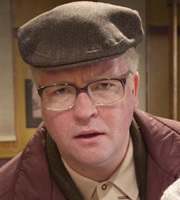- Welcome to Cook'd and Bomb'd.
-
 Snooker 23/24
by Kankurette
Snooker 23/24
by Kankurette
[Today at 06:29:06 AM] -
 Reasons why I want to obliterate...
by shoulders
Reasons why I want to obliterate...
by shoulders
[Today at 06:05:06 AM] -
 If you had to shag an animal...
by Armed Traffic Warden
If you had to shag an animal...
by Armed Traffic Warden
[Today at 05:57:58 AM] -
 Load of horses gone mental...
by easytarget
Load of horses gone mental...
by easytarget
[Today at 05:42:59 AM] -
 Baby Reindeer (Netflix 2024)...
by CaledonianGonzo
Baby Reindeer (Netflix 2024)...
by CaledonianGonzo
[Today at 05:35:39 AM] -
 The All New Beatles Thread...
by jamiefairlie
The All New Beatles Thread...
by jamiefairlie
[Today at 05:22:59 AM] -
watching The Sopranos for... by Keebleman
[Today at 05:22:10 AM] -
 "that was never the intention"...
by Theoretical Dentist
"that was never the intention"...
by Theoretical Dentist
[Today at 05:18:07 AM] -
 Wrasslin' Talk: Punk out
by Mobius
Wrasslin' Talk: Punk out
by Mobius
[Today at 03:06:16 AM] -
 I will not have it
by jamiefairlie
I will not have it
by jamiefairlie
[Today at 02:50:20 AM]
Members
 Total Members: 17,826
Total Members: 17,826 Latest: skinnylike
Latest: skinnylike
Stats
 Total Posts: 5,585,328
Total Posts: 5,585,328 Total Topics: 106,766
Total Topics: 106,766 Online Today: 1,077
Online Today: 1,077 Online Ever: 3,311
Online Ever: 3,311- (July 08, 2021, 03:14:41 AM)
Users Online
The Zone of Interest (2023) - new Jonathan Glazer/A24 film
Started by El Unicornio, mang, October 18, 2023, 12:41:20 PM
Previous topic - Next topic
User actions


